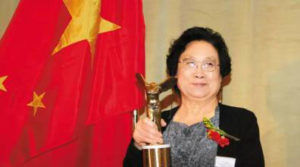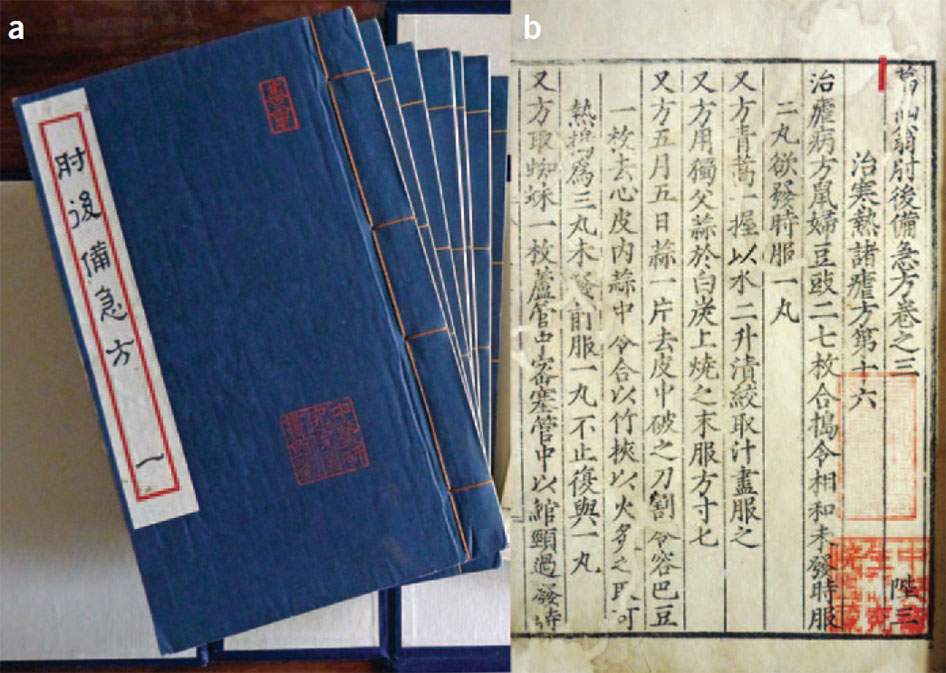In 2015, Tu Youyou 屠呦呦 became the first Chinese citizen to receive a Nobel Prize in medicine for her contributions to discovering the antimalarial drug artemisinin 青蒿素. She shared the prize with William C. Campbell and Satoshi Ōmura for their work in finding a novel therapy against roundworm parasites.
Tu’s discovery has its roots in a secret military program. On 23 May 1967, Mao Zedong launched Project 523 to find a cure for drug-resistant strains of malaria that were taking a huge toll on China’s Viet Cong allies in the Vietnam War. In 1969, the government requested help from the China Academy of Chinese Medical Sciences (formerly China Academy of Traditional Chinese Medicine) 中国中医科学院. China was in the midst of the Cultural Revolution; many of the country’s top scientists, including those that had trained overseas, had been persecuted and sent off to labour camps. Tu, who at thirty-nine held only an undergraduate degree from Beijing Medical University’s School of Pharmacy and had never studied abroad, was chosen to lead the program at her institute.
Building on previous research, Tu and her team scoured ancient texts and interviewed traditional medicine practitioners to compile over 2,000 potential anti-malarial recipes. An extract from sweet wormwood or Artemisia annua 青蒿 produced promising, but inconsistent results when tested on malaria-infected mice.
Tu credits a recipe from a manual written more than two millennia ago, Ge Hong’s 葛洪 Handbook of Prescriptions for Emergencies 肘后备急方 for inspiring the breakthrough that would lead to the discovery of artemisinin.
Ge’s recipe called for patients to drink the juice from sweet wormwood soaked in water. Tu realised that boiling the plant might have been destroying its active ingredient and thus switched to a low temperature technique, which produced an extract that completely inhibited parasite growth in animal trials.
Premier Li Keqiang called Tu’s Nobel prize ‘an expression of the huge contribution that Chinese traditional medicine and pharmacy has made to the health of humankind’. The award has not been without controversy, including over whether it vindicated Chinese medicine per se or the scientific method used to identify active compounds from traditional remedies. Project 523 was also a massive government undertaking that involved over 500 scientists from sixty military and civilian institutions; Tu was one of many working on the project. Tu herself has told The New York Times that she considered the honour of the Nobel to belong collectively to herself, her team, and the nation.
Notes
‘The Nobel Prize in Physiology or Medicine 2015—Press Release’, Nobelprize.org, 5 October 2015, online at: http://www.nobelprize.org/nobel_prizes/medicine/laureates/2015/press.html
Tu Youyou, ‘The discovery of artemisinin (qinghaosu) and gifts from Chinese medicine’, Nature Medicine, vol.17 (2011), pp.1217–1220, online at: http://www.nature.com/nm/journal/v17/n10/full/nm.2471.html
Cindy Hao, ‘Lasker Award Rekindles Debate Over Artemisinin’s Discovery’, Science, 29 September 2011, online at:
http://www.sciencemag.org/news/2011/09/lasker-award-rekindles-debate-over-artemisinins-discovery
Yi Rao, Runhong Li, and Daqing Zhang, ‘New Drugs from Ancient Chinese Remedies: Unsung heroes in Unusual Times’, ScienceNet.cn, 13 September 2011, online at: http://blog.sciencenet.cn/home.php?mod=space&uid=2237&do=blog&id=485860
Chen Tingyi陈廷一, ‘Artemisinin—Tu Youyou and the Nobel Prize’ “中国之蒿——屠呦呦与诺贝尔奖”, Beijing Daily, 12 April 2016, online at: http://bjrb.bjd.com.cn/html/2016-04/12/content_25025.htm
Jane Perlez, ‘Q. and A.: Tu Youyou on Being Awarded the Nobel Prize’, The New York Times, 9 October 2015, online at:
http://sinosphere.blogs.nytimes.com/2015/10/09/tu-youyou-nobel-prize-malaria/
‘Professor: “three without” scientist Tu Youyou wins Nobel Prize, beating the academician system’ “教授:“三无”科学家屠呦呦获诺奖拷问院士制度”, 6 October 2015, online at: http://news.sina.com.cn/c/nd/2015-10-06/doc-ifximeyv2796091.shtml




